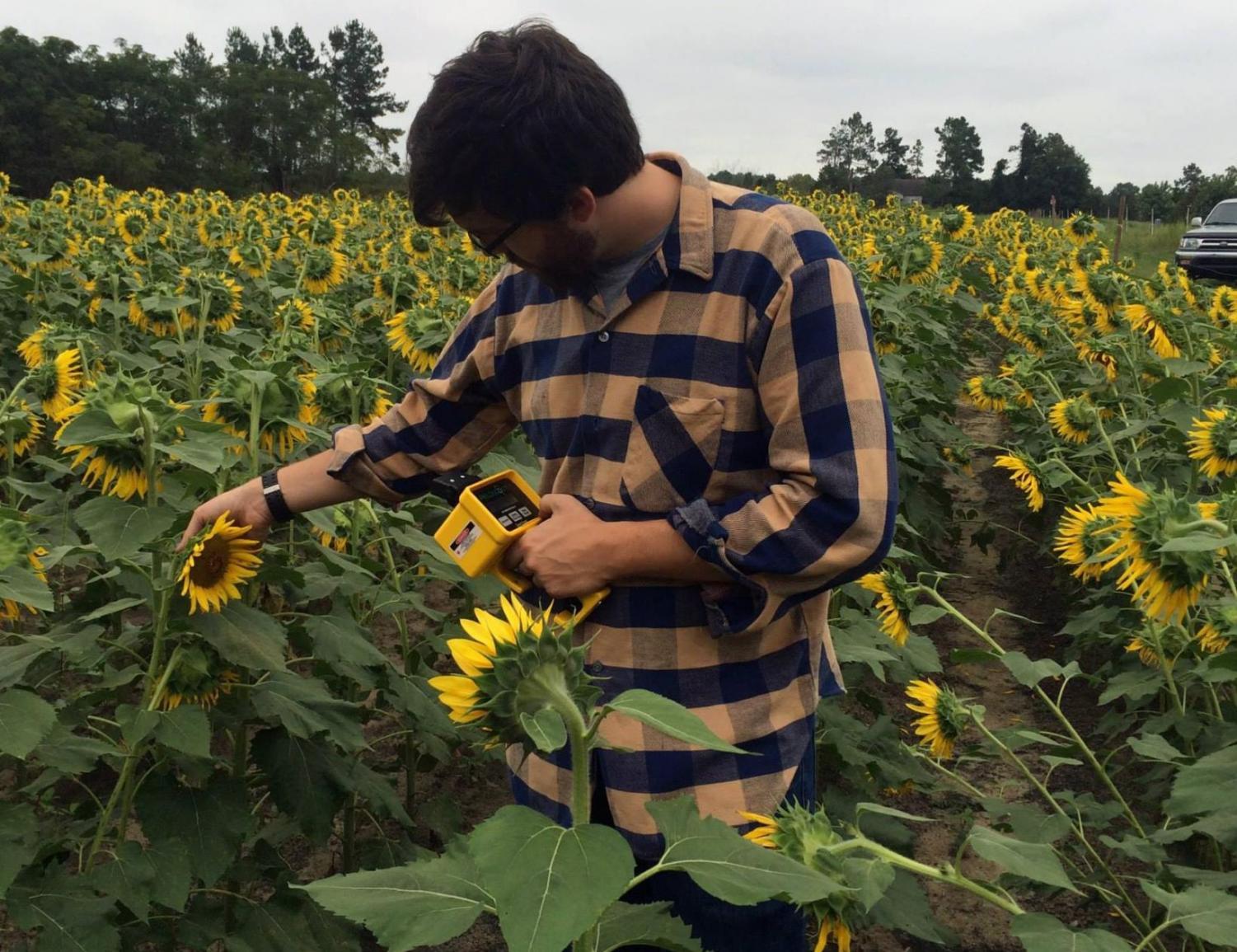Students in the Field: Sunflower Edition
September 17, 2015
Georgia Southern graduate student, Matthew Pfister, conducted an agricultural field study on the energy production in South East Georgia using sunflowers last fall.
This semester, he is currently conducting a similar study at the Georgia Southern greenhouse, where he is studying the effects of different Biochar concentrations in sunflowers.
“It is part of the same project. Last fall, we were just looking at biochar application with standard nutrients,” Pfister said. “Now we are currently in the greenhouse looking very specifically on how individual sunflower plants react to different biochar applications and nutrients.”
Pfister wanted to conduct the study based on the problems the world is facing, especially Europe, where they are currently using pelletize biomass. To pelletize biomass is the process of growing sunflower, switch grass, or other types of feedstock in a more sustainable way.
“The reason why I started looking at the sunflower, biochar, and the biofuel end of things it’s because currently we have a fossil fuels concerns, especially longevity and thing like that. We have issues with climate change and going forward we have to figure out some sort of way where we can keep current infrastructure working and mobilize for the future so it transitions into more renewables,” Pfister said.
Although Pfister was the lead of the project, it was with the help of local farmers, Dr. Subhrajit Saha, of the Agroecology department, and Georgia Southern students that he was able to conduct his research.
“With help of J.J. Lee, the farmer I work with, and corporation of local farmers, we were able to use some of the land and actually set aside some land for research,” Pfister said.
The original plan was to farm a set of sunflowers for the Fall and another for the Spring, but due to time conflicts the research had to be moved to the new greenhouse and be conducted on a smaller-scale than originally intented.
“The plan was to go out in the Spring and do another field planting due to time limitations with the Master’s program and once again working with local farmers, you have to work within their schedule, that just didn’t work out,” Pfister said.
Another problem Pfister faced was the fact that currently Georgia Southern doesn’t have research fields like some large universities around the country, resulting in a reliance on local farmers.
In addition, Pfister had some advice on how undergraduates should proceed if they are interested in conduction some research on campus.
“There are actually a lot of opportunities if you know who to contact. My advice for undergraduate student if they are interested in doing research and are feeling nervous about it, to put that aside,” Pfister said. “Professors are very happy when you show interest in their work and similar work, so they will be open to pointing in the right direction or helping you out along the way.”









